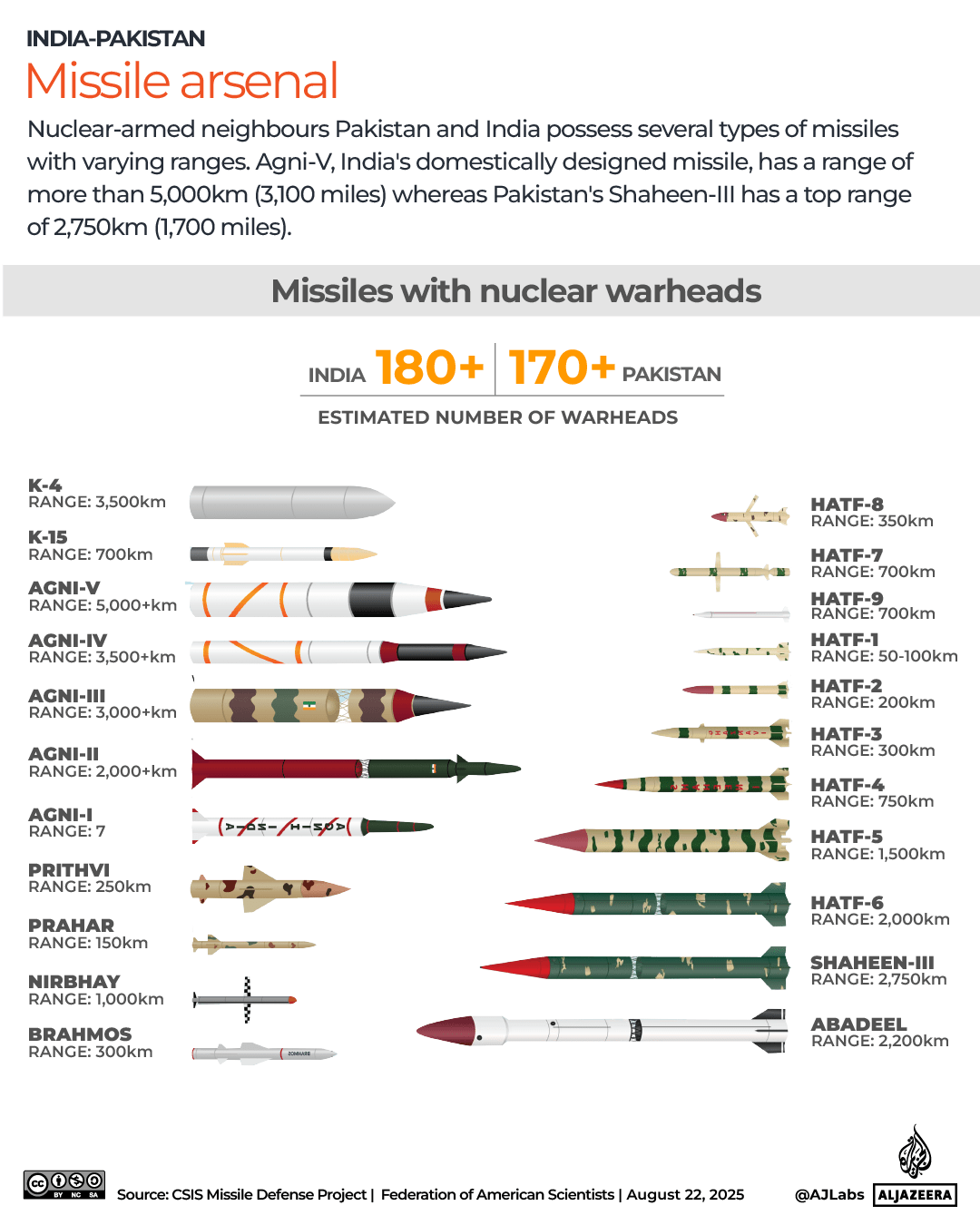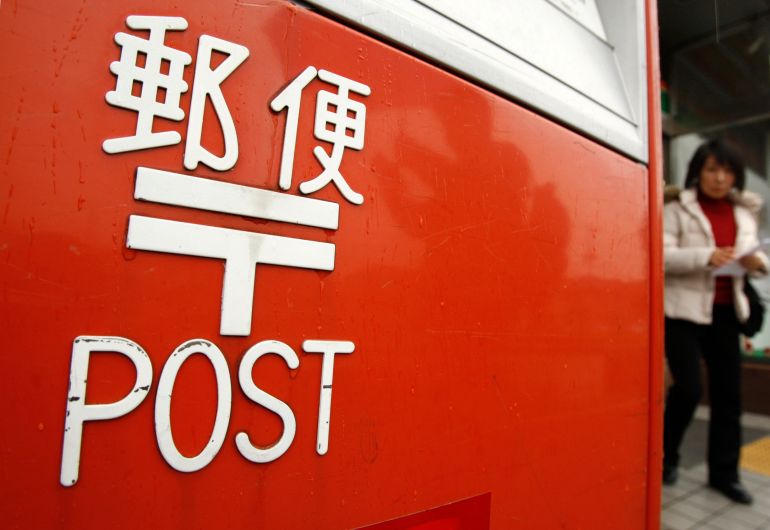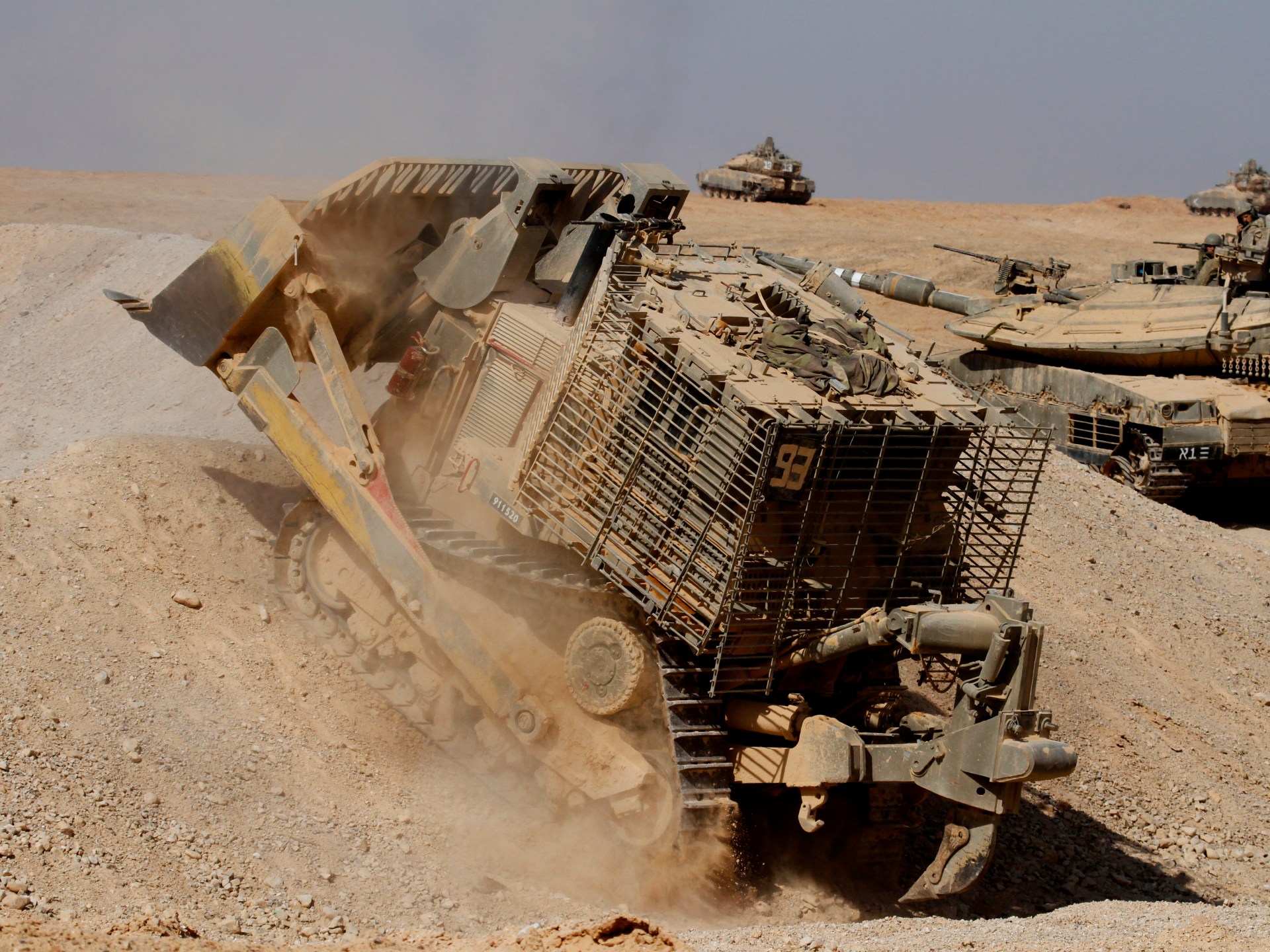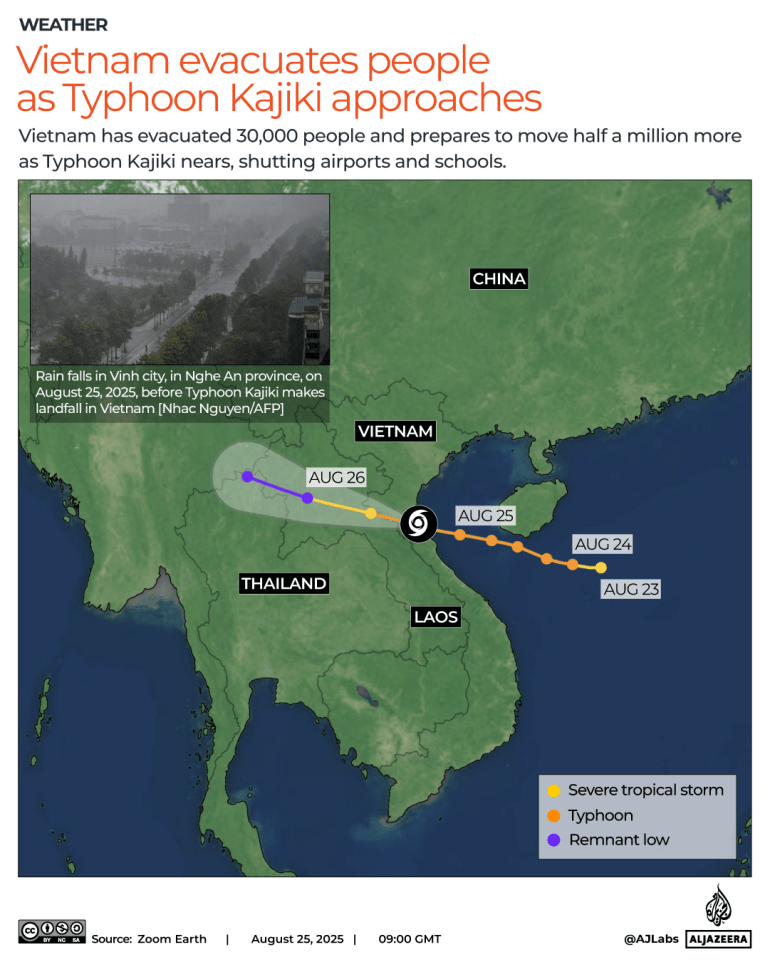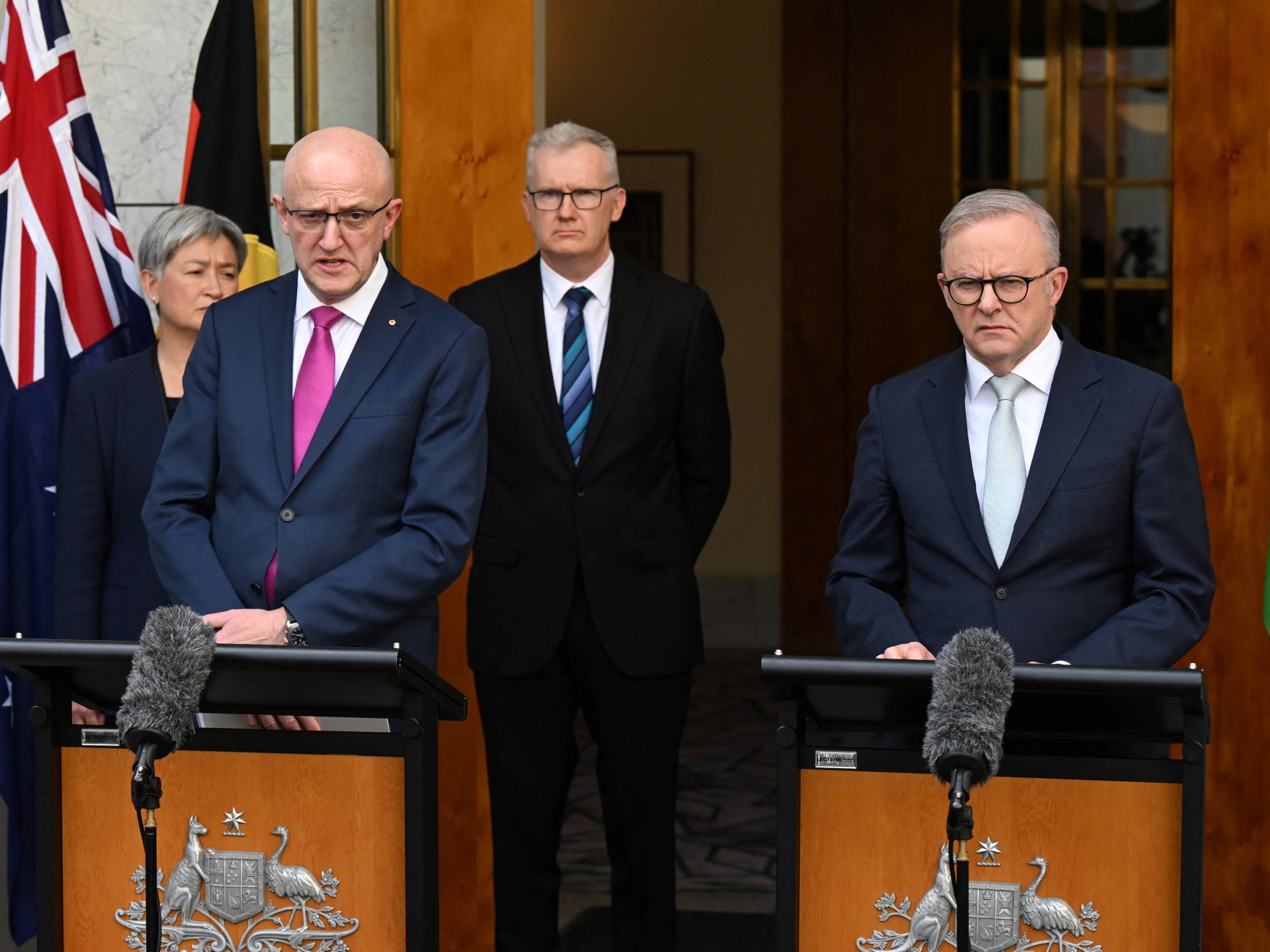Islamabad, Pakistan – On the eve of Pakistan’s 78th Independence Day, Prime Minister Shehbaz Sharif announced the formation of a new Army Rocket Force Command (ARFC) that he said would “have modern technology and capability to strike the enemy from every direction”.
“It will further enhance our conventional warfare capabilities,” Sharif said during an August 13 event in Islamabad.
“Enemy” in Pakistan is code for India, Pakistan’s nuclear-armed neighbour and rival, which a week later would test-fire its Agni-V intermediate-range ballistic missile, with a top range of 5,000km (3,100 miles).
Most analysts have dismissed any connection between the Agni testing, which took place from the integrated test range in India’s eastern state of Odisha off the Bay of Bengal, and the formation of the ARFC.
But the ARFC’s creation follows a tense four-day conflict between Pakistan and India in May, during which the two sides exchanged air strikes, missile fire and drone attacks on each other’s military installations. Experts say the conflict exposed holes in Pakistan’s strategic deterrence, which for almost three decades has now relied on the country’s nuclear weapons – and an ambiguous posture over when it might use them.
The establishment of a dedicated rocket force also reflects a wider global trend. Recent wars, including those between Ukraine and Russia and Israel’s confrontations with Iran and Hezbollah, have underscored the growing role of precision-guided missiles and drones in modern warfare.
What is Pakistan’s Army Rocket Force Command?
Sharif did not disclose operational details of the ARFC, but security analysts describe it as a new arm of the Pakistan Army created to centralise control of conventional missile forces.
Under Pakistan’s military command structure, its nuclear arsenal falls under the Strategic Plans Division (SPD), while strategic decisions are taken by the National Command Authority (NCA), the country’s highest decision-making body on nuclear and missile policy.
According to Naeem Salik, a former army officer who served at the SPD, the ARFC will focus on guided conventional rocket systems rather than nuclear-capable weapons.
“Unlike traditional artillery, which has a limited range of about 30 to 35 kilometres (19 to 22 miles), the ARFC focuses on guided rockets which are purely conventional systems and do not have nuclear capability,” Salik, who now leads Islamabad-based think tank Strategic Vision Institute (SVI), told Al Jazeera.
He said nuclear-capable ballistic and cruise missiles remain under the control of the SPD and NCA, while the ARFC will be overseen by the army’s General Headquarters (GHQ).
On the other hand, Tughral Yamin, a former army brigadier and a specialist on arms control and nuclear affairs, says the need to create ARFC was to ensure enhancing operational readiness and increase efficiency in deploying missile assets, both for deterrence and during limited conflicts.
“The Rocket Force Command must be seen in the broader context of evolving regional threats. It is not a knee-jerk reaction to any one test or skirmish,” Yamin said.
Pakistan’s army currently operates nine corps across the country, alongside three specialised commands: Air Defence, Cyber, and the Strategic Forces Command, which manages nuclear delivery systems.
The ARFC is expected to be led by a three-star general, reflecting its strategic significance. A three-star general in Pakistani army is among the senior-most generals who are given the tasks of leading strategically important military corps and other departments.
Why was the ARFC needed?
Analysts argue that the ARFC is a long-term doctrinal evolution rather than a short-term response to India’s missile tests or the May conflict.
“The Indian missile tests underscore the urgency of Pakistan keeping pace, but the Rocket Force Command is part of a long-term doctrinal evolution rather than a short-term reaction,” Yamin said.
Christopher Clary, a political scientist at the University at Albany, echoed that view.
“Pakistan had already begun shifting its planning toward having more short-range ballistic missile options to use in conflicts with India,” Clary told Al Jazeera.
“It makes sense in that context to separate out the Strategic Forces Command, responsible for nuclear missions, from the Rocket Force, which would focus on conventional strikes,” the academic added.
Mansoor Ahmed, a lecturer at the Australian National University, said Pakistan has been building conventional counterforce capabilities for years.
“All nuclear-armed states have developed conventional strategic options. Pakistan’s ARFC therefore fills an important doctrinal and capability gap in the face of India’s growing counterforce options,” he said.
He argued that India’s development of a “first-strike posture” and long-range precision capabilities added urgency to Pakistan’s decision.
“The May conflict only reinforced the urgent need to operationalise Pakistan’s emerging strategic conventional forces in the wake of India’s conventional cruise missile strikes,” Ahmed, who also authored Pakistan’s Pathway to the Bomb: Ambitions, Politics, and Rivalries, told Al Jazeera.
What missiles will fall under the ARFC?
Pakistan possesses a range of missiles, including surface-to-surface, air-to-surface, and surface-to-air systems.
While some are nuclear-capable, the ARFC will primarily control short- to medium-range conventional missiles, according to security experts.
Salik said the force currently includes the Fatah-1 (range up to 140km or 90 miles) and Fatah-2 rockets (range between 250-400km or 155-250 miles), both of which were deployed during the May conflict, along with systems like Hatf-1 and Abdali, which have ranges less than 500km (310 miles).
Ahmed said the new command would provide Pakistan with “deep-strike options against high-value targets in India without lowering the nuclear threshold”.
“The development of multiple-launch rocket systems and conventional precision-strike capabilities under the ARFC is central to executing Pakistan’s Quid Pro Quo Plus doctrine, which is a response to India’s escalatory deterrence posture,” he said.
The Pakistani doctrine of “quid pro quo plus” refers to the possibility of Pakistan’s response to an Indian attack, which could go beyond a simple reciprocal action, by being more expansive or even disproportionately severe in a way that could risk intensifying the conflict, but remain contained enough to avoid a nuclear escalation.
Lessons from the May conflict
During the May fighting, Pakistan claimed to have shot down several Indian jets on the battle’s opening day.
While initially denying the loss of any planes, Indian military officials eventually conceded having lost jets, without acknowledging the exact number of planes that were shot down.
India retaliated with deep strikes across Pakistan, hitting airbases and installations, including the Bholari airbase in Sindh province, targeted with a BrahMos supersonic cruise missile jointly developed by India and Russia.
After the four-day conflict ended on May 10 with a ceasefire, Indian Prime Minister Narendra Modi said India “only paused” its military action against Pakistan.
In his first speech after the cessation of fighting, Modi said his country “will not tolerate nuclear blackmail” and added that the Indian government will not make a distinction between governments that support “terrorism” and “terrorist groups”.
Ahmed said the ARFC was aimed, in part, at countering “this new normal of ‘escalatory deterrence’ [from India] that seeks to exploit perceived gaps in Pakistan’s conventional retaliatory ladder”.
Pakistan’s nuclear doctrine has long been central to its defence posture and has for years focused on developing its arsenal of tactical nuclear weapons.
Tactical nuclear weapons consist of short-range, low-yield nuclear weapons which are primarily intended to be used against an opposing army on a battlefield, instead of medium-to-longer range weapons which can be used against strategic targets.
They are designed with the intention to deter any large-scale Indian incursion. But the 2025 conflict was the second time in six years that the two nations came to the cusp of a potential nuclear escalation, after tensions erupted in 2019 when Indian jets bombed Pakistani territory, claiming to hit fighter camps.
A former Pakistani government defence analyst said the rocket force was designed to plug gaps exposed during the May war.
“When India employed the BrahMos missile, Pakistan was unable to deploy its Babur cruise missiles in a conventional role, as they are solely managed by the SPD and Strategic Forces Command for nuclear missions,” the analyst said, requesting anonymity.
The Babur, also known as Hatf-7, is a ground-launched cruise missile with a 700km (435-mile) range, and has been operational since 2010 but remains tied to Pakistan’s nuclear doctrine.
“Establishing a new rocket force underlines shortcomings of the existing nuclear posture, which relied on tactical nuclear weapons to deter India from attacking Pakistan,” the analyst said.


